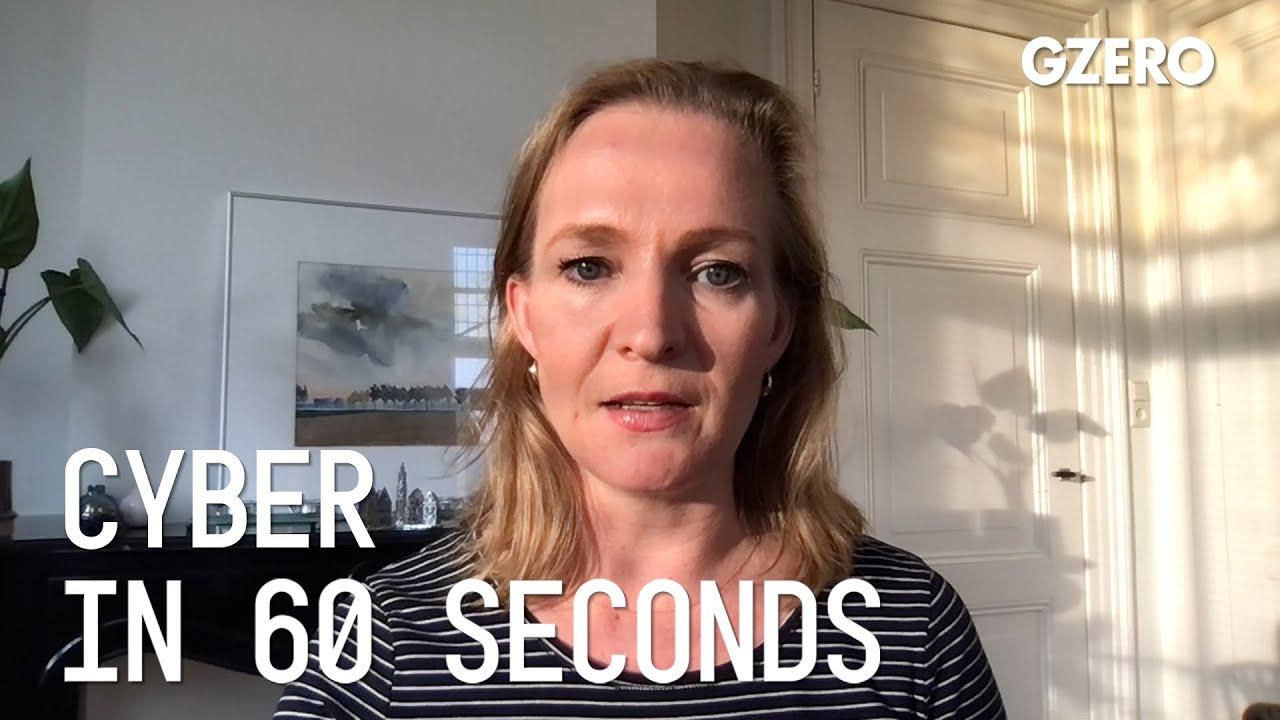Cyber in 60 Seconds
QUAD supply chain strategy to consider values; new AI-powered weapons

Placeholder | Cyber In :60 | GZERO Media

Marietje Schaake, International Policy Director at Stanford's Cyber Policy Center, Eurasia Group senior advisor and former MEP, discusses trends in big tech, privacy protection and cyberspace:
How will the QUAD leaders address the microchip supply chain issue during their meeting this week?
Well, the idea for leaders of the US, Japan, India, and Australia, is to collaborate more intensively on building secure supply chains for semiconductors, and that is in response to China's growing assertiveness. I think it's remarkable to see that values are becoming much more clearly articulated by world leaders when they're talking about governing advanced technologies. The current draft statement ahead of the QUAD meeting says that collaboration should be based on the rule of respecting human rights.
Will AI dominate the future battlefields?
Well, we've already seen new uses of AI-powered arms, but also new opportunities for cyberattacks from the increased use of AI, which leads to growing and vulnerable attack surface. The New York Times recently investigated how Iran's top nuclear official was executed with an AI-assisted, remote-controlled killing device. The gun, equipped with intelligent satellite systems, used AI to verify when and at whom to fire the lethal shots. So there are new weapons, but also new opportunities to exploit vulnerabilities in AI. It is safe to say that warfare is already changing and that in many ways, conflict and cyberattacks, as a result of both, the specific use in arms as well as the broad uptake in society will change dramatically.
With the US leading production and China driving new reactor development, Bank of America breaks down the who, what, where, when, and why behind nuclear’s return. Stay ahead of global energy trends with Bank of America Institute.
Chris, an Army veteran, started his Walmart journey over 25 years ago as an hourly associate. Today, he manages a Distribution Center and serves as a mentor, helping others navigate their own paths to success. At Walmart, associates have the opportunity to take advantage of the pathways, perks, and pay that come with the job — with or without a college degree. In fact, more than 75% of Walmart management started as hourly associates. Learn more about how over 130,000 associates were promoted into roles of greater responsibility and higher pay in FY25.
Last week, at the Munich Security Conference, a group of global technology providers, including Microsoft, announced the Trusted Tech Alliance — committed to shared, verifiable principles for trusted, transparent, and resilient technology across borders. At a moment of economic volatility and zero-sum technological competition, countries and customers are demanding greater accountability from technology providers. The Alliance addresses this by bringing together companies from across Africa, Asia, Europe, and North America around shared commitments: transparent governance, secure development practices, supply chain oversight, open digital ecosystem, and respect for the rule of law — ensuring the benefits of emerging technologies strengthen public trust while driving job creation and economic growth. Explore the Trusted Tech Alliance here.